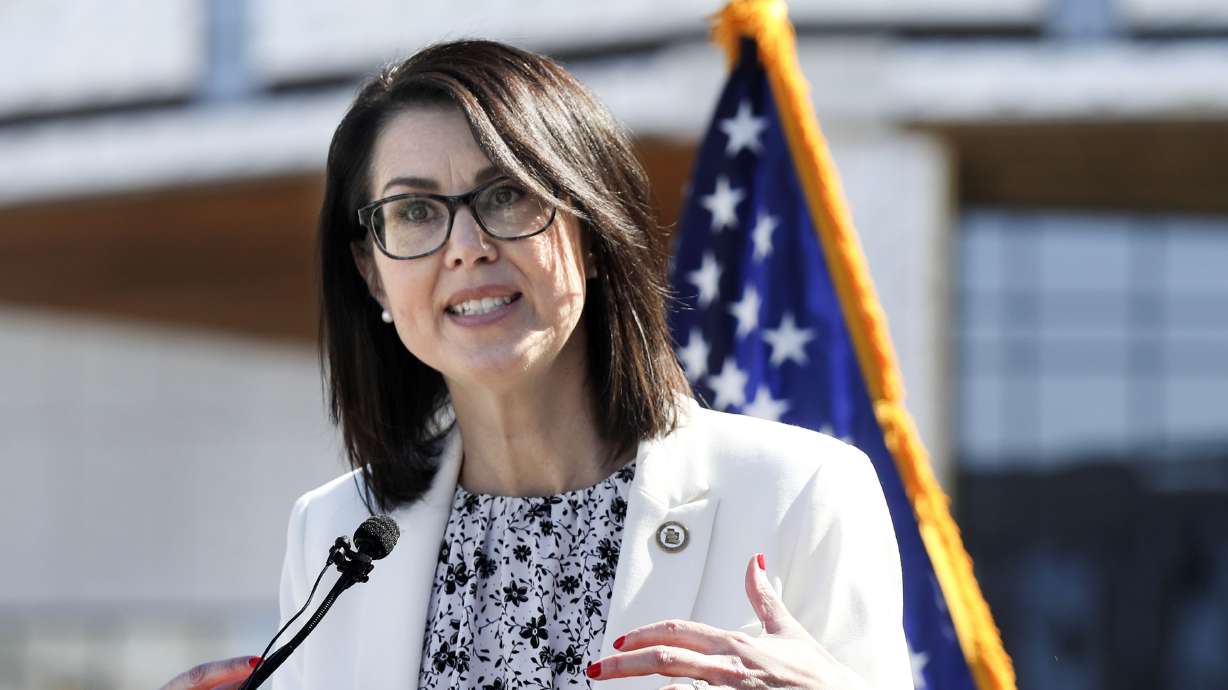Estimated read time: 3-4 minutes
This archived news story is available only for your personal, non-commercial use. Information in the story may be outdated or superseded by additional information. Reading or replaying the story in its archived form does not constitute a republication of the story.
SALT LAKE CITY — Lt. Gov. Deidre Henderson has joined a number of Utah leaders voicing support for the Indian Child Welfare Act and enacting legal protections for Native American adoptions at the state level.
Henderson tweeted her support for the act on Saturday. The law, often referred to as ICWA, was passed in 1978 to safeguard against extensive forced separation of Native children from their families and communities. It is currently being challenged in the Supreme Court.
"A tribe is a political and governmental classification, not a racial one," Henderson tweeted. "Utah supports the Indian Child Welfare Act (ICWA) and will seek to codify it to protect the eight federally recognized Native American tribes in our state."
A Tribe is a political and governmental classification, not a racial one.
Utah supports the Indian Child Welfare Act (ICWA) and will seek to codify it to protect the 8 federally recognized Native American tribes in our state. https://t.co/toXbEuROP2— Deidre Henderson (@DeidreHenderson) December 4, 2022
Codifying ICWA in Utah law has widespread support, including from Utah's eight federally recognized tribes, the Indian Law Section of the Utah State Bar and the Utah Native American Legislative Liaison Committee, which voted unanimously in November to introduce an ICWA bill in the 2023 legislative session. Utah Attorney General Sean Reyes was also a part of a bipartisan coalition that submitted an amicus brief in support of ICWA, arguing that the law fosters good relationships between states and tribal governments.
Henderson's statement seemed to be in response to a recent Deseret News article titled, "Is the Indian Child Welfare Act racially discriminatory?" which was embedded in the tweet. The idea that the law is racially discriminatory is the argument state of Texas and several white families who are adopting Native children have taken up in the Supreme Court case Haaland v. Brackeen.
The case has implications not only for the fate of Native children but also for tribal sovereignty and the foundations of federal Indian law, which recognizes "Indian" as a legal status, based on treaties between U.S. and tribal governments, rather than a special interest group or a protected class.
Opponents of ICWA argue that ICWA places tribal interests above the children's best interests; while supporters say the act is the gold standard for child welfare laws and creates a process that promotes efforts to keep children connected with their families, communities and culture.
Prior to ICWA, Native children were removed from their families and tribes at an alarming rate. Approximately 80% of Native families living on reservations lost at least one child to the foster care system before ICWA. That amounted to about one-third of all Native children being removed. Of those removed, 85% were placed outside their families and communities — even when fit and willing relatives were available.
Rupert Steele, chairman of the Confederated Tribes of the Goshute Reservation, has been a strong advocate of codifying ICWA in Utah. Steele, who grew up before ICWA was enacted, remembers feeling distrustful of outsiders as a child growing up on the Confederated Tribes of the Goshute Reservation after seeing other children removed from their families and the reservation.
"(ICWA) had a calming effect," Steele told KSL.com in November, adding that the Supreme Court challenge has done the opposite. "It's troublesome; worrisome. Do we go back and tell our children that this may happen to you guys — because of my experience, and what I've seen — this may happen?"










